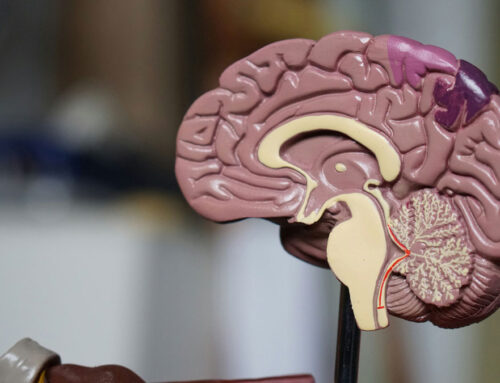From misplacing your car keys to forgetting your glasses on top of your head, everyone has a blip in memory from time to time. But what happens when you regularly feel as if you’re unable to focus, concentrate or even make the simplest decisions?
You’re probably experiencing a bout of brain fog – the vague sense that there’s something you need to do or say, but for some reason, you can’t quite remember.
While not as dramatic as the plot in James Herbert’s best-selling horror novel, The Fog, about a deadly mass of water particles in the air that drives its victims insane after they come in contact with it, suffering a temporary bout of brain fog can be unnerving.
If you’re otherwise healthy and get that foggy feeling every now and then, a few tweaks to your lifestyle should help lift the fog. If any condition persists, however, such as brain fog, it could be a signal of an underlying health condition. Consult your naturopathic doctor or other health care practitioner.
A head in the clouds
For an organ about the size of a small head of cabbage, your brain does remarkable work throughout your entire body. It controls all the body’s functions such as talking, swallowing, walking, and more. It also reminds you to blink, regulates your breathing and helps you to read printed words.
Although not a medically recognized term, brain fog seems to be a real symptom and happens to most of us at some point in our lives, according to Dr. Michael Segal, founder and chief scientist at SimulConsult.
Brain fog is:
- Difficulty focusing (inattention, difficulty correlating information, getting anything done takes a long time)
- Clouding of consciousness, lack of mental clarity
- Confusion; confusional state
- Difficulty retrieving memories (forgetfulness) and difficulty choosing words (some have wondered whether they are getting Alzheimer’s disease)
Why we get lost in the fog
Not enough sleep
The No. 1 cause of brain fog is lack of sleep.
“We all need between seven and nine hours of sleep in order to think clearly, and most of us just don’t get enough,” says registered nurse and homeopath Janet Neilson. “One or two nights a week of decent sleep just doesn’t cut it.”
Food choices
If, despite good amounts of sleep, the brain fog symptoms persist, then chances are high that the culprit is food, either the type of food consumed (alcohol, sugar, refined carbohydrates, caffeine) or a deficiency. Restrictive eating habits, such as vegetarian or vegan diets can sometimes lead to a B12 deficiency. Vitamin B12 can only be found in animal protein and it is an essential nutrient for mental clarity.
Food allergies
Allergies cause the body to produce high levels of histamine. Histamine can cause brain fog, especially if one doesn’t have enough of an enzyme needed to break down histamine quickly enough. Common food allergen culprits involve specific proteins or antigens such as gluten (wheat, spelt, rye, barley and oats), casein (all dairy), yeast and food additives.
Hypoglycemia or low blood sugar
Irregular eating patterns can lead to low blood sugar levels or, alternatively, a diet high in excessive levels of carbohydrates (breads, pizzas, sugars) can lead to swings in blood-glucose levels.
Every time an individual gets hypoglycemic they are damaging their brains.
Circadian rhythms
Circadian rhythms can be thrown off balance due to the extensive use of electronic devices. Bright lights coming off electronic devices can throw off the body’s rhythms and lead to circadian disruption that is similar to jet lag.
Some people are more sensitive to this than others. Additionally, the frequency with which young people are checking their devices creates a type of attention-deficit that can directly contribute to a lack of focus or motivation.
How to get clear-headed again
Taking daily supplements can help your brain do all the things it needs to, even when you’re sleeping. Here are some suggestions worth considering:
- CanPrev’s Mind-Pro™ can be taken chronically for general symptoms of brain fog or acutely prior to when extreme concentration or focus is required
- To feel clear-headed, practice good sleep hygiene and get up and go to bed at the same time each night
- Exercise (daily!) increases blood and oxygen flow to the brain. Both are vital for optimal brain performance
Boost your memory and age-proof your mind with these other CanPrev natural health products:









Hi There I would like to inquire which one is best for brain is it Mind Pro or Synergy B, cause I’ve read the cause effect of mind pro that you can’t use it if your taking fish oil and vit e it contradict
Please help me i did my research that b6 b9 b12 and folate need for the brain to avoid forgetfulness , is there any you can recommend?
Thank you